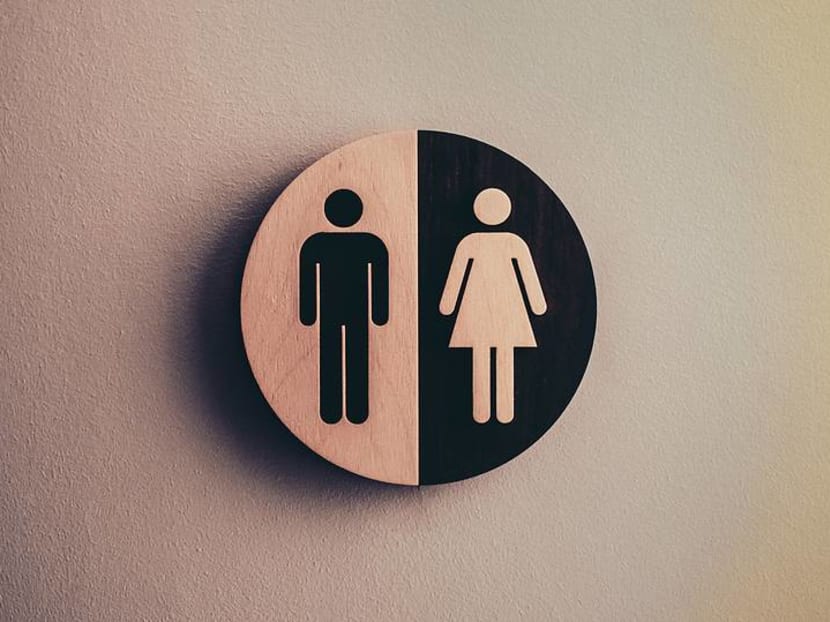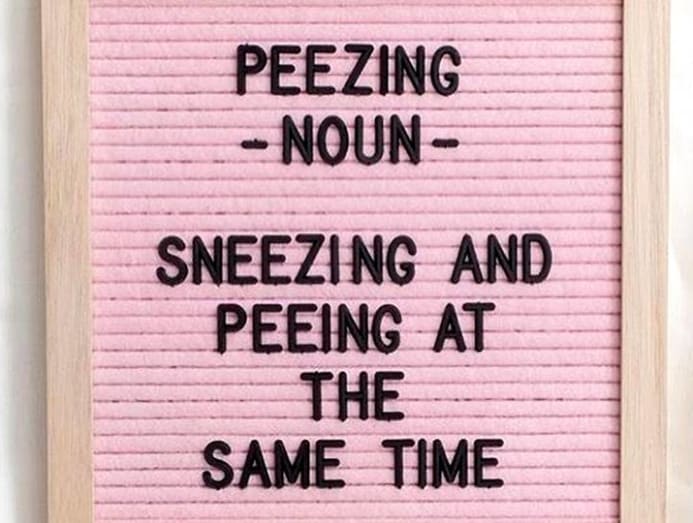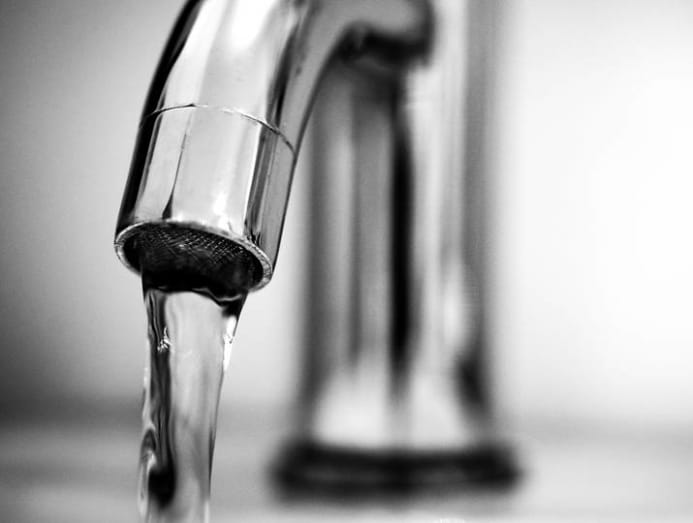Why you can't control your pee when you're still young – and how to fix it
Advertisement
Wellness
Why you can't control your pee when you're still young – and how to gear up it
Incontinence, both urinary and faecal, can be very real for some in their early 40s and fifty-fifty teenagers. Surprisingly, Botox might exist involved in keeping accidents at bay.

(Photo: Unsplash/Tim Mossholder)
23 Sep 2022 06:30AM (Updated: xiii Aug 2022 02:26PM)
The last time you lot couldn't contain yourself earlier locating the bath was probably when you were still in ambrosial training pants. Fast forward to now and it might be happening once again, except that this time, there'south no one to clean upwards subsequently yous and it's no longer cute.
If you're thinking, nah, faecal and urinary incontinence is something that just affects those in their 70s, and you still have many years to become, don't be so sure yet. Urinary incontinence tin can happen in women in their late 40s, said Dr Ng Lay Guat, senior consultant with Singapore General Hospital's Department of Urology.
Urinary incontinence tin fifty-fifty be experienced during the teenage years, said Dr Park Joon Jae, urology consultant with Changi General Hospital (CGH). "I take seen patients as young every bit 17 years of age," he said.
A Non-SO-WEE Trouble
While older folks tend to have incontinence of both or either type, urinary incontinence is more common, said Dr Ng. The causes are varied and age-related muscle degeneration is but 1 of the usual ones, which explains why these issues are more common in the elderly, he said.
In younger patients, the causes may be neurological, including impairment to the brain, spinal cord or nerves. In teenagers, it tin can be the result of hormonal changes, a bladder infection or childhood bedwetting that has been carried over into teenhood.
In some instances, pelvic muscle injury from high-touch on sports such every bit gymnastics could be a crusade, according to a report past the Health Department of Stellenbosch Academy.

When it comes to faecal incontinence, younger patients may suffer from it due to uncontrolled inflammatory bowel disease (IBD), said Dr Ang.
She added that in women, it could result from "harm to the nerve supply that helps to maintain continence" sustained from prolonged or multiple childbirths.
"Illnesses such equally diabetes or a stroke tin similarly affect the nerve supply to the rectum or anus. A stiff rectum may occur in inflammatory bowel disease or after radiation therapy for prostate cancer," she said.
In some patients, severe chronic constipation is the cause. The faecal leakage occurs when the rectum is and so full of solid stools, liquid stools can't be contained and they flow out involuntarily, said Dr Ang.
READ: Is it okay to concord your pee when you don't have the time or can't find a toilet?
And in case yous're wondering if these 2 are related, they can exist. Dr Park explained that the connection between the two forms of incontinence lies in the pelvic flooring – a span of muscles that support the organs at the bottom of the pelvis.
Damage to the pelvic floor, which tin can have the form of a difficult childbirth or traumatic spinal string injury, can lead to urinary and/or faecal incontinence, he said.
"Of course, ageing and prolonged excessive utilise, seen during chronic straining or coughing, can as well lead to the weakening of the pelvic flooring."

Assist IN THE Class OF BOTOX AND TOILET TRAINING
If sneezing, coughing or even performing a deadlift in the gym creates accidents in your underwear, there are ways to treat information technology.
For urinary incontinence, Dr Park said that the treatment depends on whether it's stress urinary incontinence (SUI for short; acquired by abdominal pressure exerted when coughing, straining or running) or urgency urinary incontinence (UUI for short; characterised by a frequent urge to urinate and in some cases, leakage before reaching the bathroom).
For SUI, strengthening the pelvic floor with Kegel's exercises may be all that is required to achieve an adequate level of urinary incontinence, said Dr Park.
Post-menopausal women who experience SUI "may benefit from the additional use of a topical oestrogen cream".
To treat UUI, which is often acquired past an overactive bladder, Botox may be used. Yes, the same stuff that is injected into the face to smoothen out wrinkles. "Botox is quite ordinarily used and is probably good for eye-aged patients," said Dr Ng, who noted that the effect can final six to nine months.
Co-ordinate to the University Infirmary Southampton, the procedure is performed nether full general amazement and involves inserting a sparse tube with a photographic camera at one finish into the bladder.
This allows the surgeon to make about 20 injections of Botox into specific sites of the bladder wall.
In more severe cases of UUI, sacral nerve stimulation may exist used, said Dr Park. Information technology involves inserting a small electric device under the pare of the lower back that produces electric currents to attune the float's activity.
"Sacral nerve stimulation is also a treatment option for faecal incontinence," said Dr Ang.
Although the success rates fall betwixt fifty per cent and ninety per cent, its loftier price and the need to alter the battery every v to ten years limit its use in Singapore, said Dr Park.

In astringent cases and by and large for male patients, an artificial urinary sphincter may be surgically implanted around the bladder neck to proceed the sphincter shut until yous're ready to urinate, shared Dr Ng.
READ: What your poo says about your wellness
When it comes to managing faecal leakages, Dr Ang said that improving the patient'southward constipation is key if that is the cause of the incontinence. Bowel grooming is also crucial.
"Patients are taught to visit the toilet at a specific time of the twenty-four hours, unremarkably after breakfast. In addition, strengthening the muscles of the pelvic floor with biofeedback therapy is an important treatment for faecal incontinence as well," she said.
Surgery in the class of a sphincteroplasty is the last resort if conservative measures don't work. This is done to repair anal sphincters in women that have been damaged during childbirth, said Dr Ang.
IS It Truthful THAT…
When information technology comes to safeguarding yourself against incontinence, at that place are some myths that may lead yous to sabotage your health farther – or merely, well, doesn't hold water. Holding your pee for too long is one.
"Property i'due south urine for extremely long periods of fourth dimension, such as more than eight hours in the day is non advisable," said Dr Park. But if you tin can't find a washroom, for instance, a short menstruum of fifteen to threescore minutes is "unlikely to atomic number 82 to any serious harm", he said.
Another misconception is, if you already suffer from urinary incontinence, you shouldn't beverage too much water. Drinking an adequate amount of water is important, especially in Singapore'southward heat, said Dr Park.
"A fluid intake betwixt one.5 litres and 2.5 litres per 24-hour interval (depending on one'due south height and weight) will be adequate for almost."
Those who work or do regularly under the sun will have to increase their fluid intake accordingly. Information technology is all about context. For case, if you're working in an air-conditioned office, drinking 3 litres to 4 litres of water a day may worsen your symptoms of incontinence instead, said Dr Park.
As for bowel incontinence, yous'd be right to avert foods that crusade diarrhoea as they will worsen your status, said Dr Ang.
"These include spicy foods, oily foods, dairy products (particularly those who are lactose intolerant), foods with artificial sweeteners and caffeinated drinks," she said.
Contempo Searches
Trending Topics
Source: https://cnalifestyle.channelnewsasia.com/wellness/wetting-soiling-yourself-incontinence-old-age-childbirth-234436

0 Response to "Why you can't control your pee when you're still young – and how to fix it"
Post a Comment